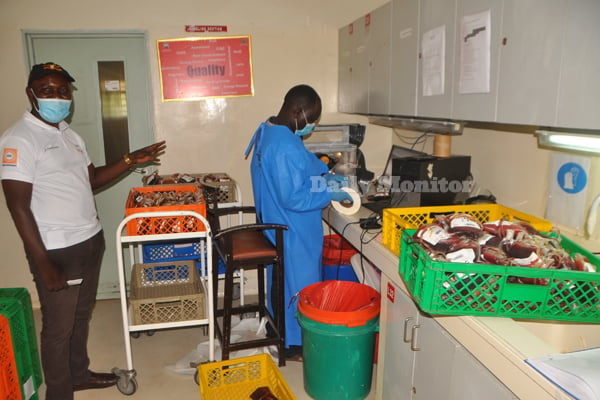World Blood Donor Day: Why we should voluntarily donate blood

Blood donation remains an altruistic gesture of kindness from one person to another. PHOTO/COURTESY
What you need to know:
- Health staff have been accused of exchanging voluntarily donated blood for cash from blood recipients.
- “Give blood, give plasma, share life, share often.”
World Blood Donor Day takes place on June 14 each year.
The day was created to raise awareness of the value of voluntary, unpaid blood donations in medical care and to show gratitude for these altruistic offerings from donors.
The theme for this year’s World Blood Donor Day is “Give blood, give plasma, share life, share often” in recognition of how blood donation remains an altruistic gesture of kindness from one person to another.
We cannot manufacture blood in a lab. There are currently no medical alternatives to blood donations for people in need.
These include women in labor, newborns, surgeries, and diseases such as hemorrhage, sickle cell anaemia, cancer, and leukemia. Blood is most urgently needed in accidents, emergencies, and other life-saving situations.
Despite the necessity of blood for maintaining life, Uganda currently struggles with a national shortage of blood and blood products because voluntary blood donation is so low.
Donor apathy is the refusal of people who might be able to donate blood but choose not to.
The Uganda Blood Transfusion Services (UBTS) barely collects 300,000 units annually despite having a demand for up to 450,000 units, leaving a shortage of more than 150,000 pints of blood.
This is despite the fact that there are more than 48 million people in the country, almost half of them are under the age of 24, making them the ideal blood donors.
Donors who voluntarily give their blood are more trustworthy and safe than those who are paid or forced to.
However, the number of voluntary donors is still alarmingly low due to a number of factors, including inadequate donation centers, lengthy wait times, poor hospital reception, burdensome processes, limited opening hours, and limited opening days.
Blood donation needs to be freely accessible during evenings and weekends in major cities like Kampala, which are full of busy traffic and working people.
Fear of needles, infection, or illness following donation also deters some potential donors. This rarely occurs, and the convenience and safety of blood donation must be increased through lobbying, particularly among youth.
Furthermore, a lack of commitment to blood donation might be ascribed to mistrust of the health care system, particularly health staff in charge of blood collection, storage, and distribution.
Health staff have been accused of exchanging voluntarily donated blood for cash from blood recipients.
This small number of bad apples also disincentivizes voluntary donations.
Last but not least, socioeconomic issues still prevent voluntary donation.
Finding the time and self-sacrifice to go and donate blood for strangers might be challenging because a sizable portion of the population struggles with fulfilling basic needs, ongoing unemployment, increasing poverty, and general insecurity.
The government has made enormous investments in raising public awareness of voluntary blood donation and its significance for the continuation of life.
Reputable blood donation organizations like the Uganda Red Cross Society (URCS) keep up their efforts to raise awareness of the value of blood donation among the general public and to make the procedure easier for donors and patients, including timely blood delivery.
Ivan Munguongeyo, Performance Monitoring, Evaluation, Reporting Officer, Uganda Red Cross Society!




